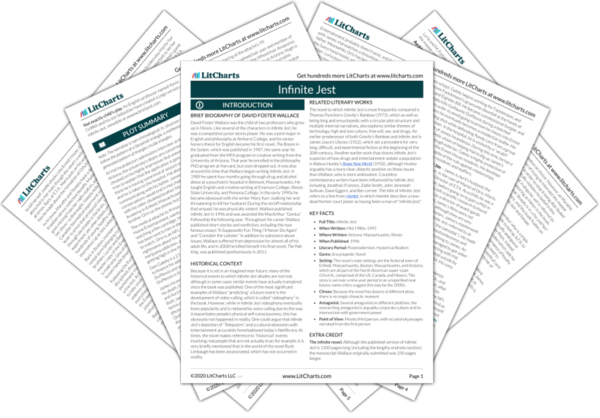In between Gately’s recollections of his own past, he also has a vision of the future. We know from the beginning of the novel that he and Hal are digging up James’s head; the important thing contained inside it is the cartridge James mentions having implanted inside his skull. Assumedly Hal wants to use this to create an antidote to the Entertainment. However, Hal’s indication that it is “Too Late” suggests that the implant isn't actually there, perhaps because someone else got to it first (presumably Orin). The image of digging up a head is also another
Hamlet reference—the phrase “infinite jest” itself comes from Hamlet’s monologue to a skull that he finds in a graveyard.
